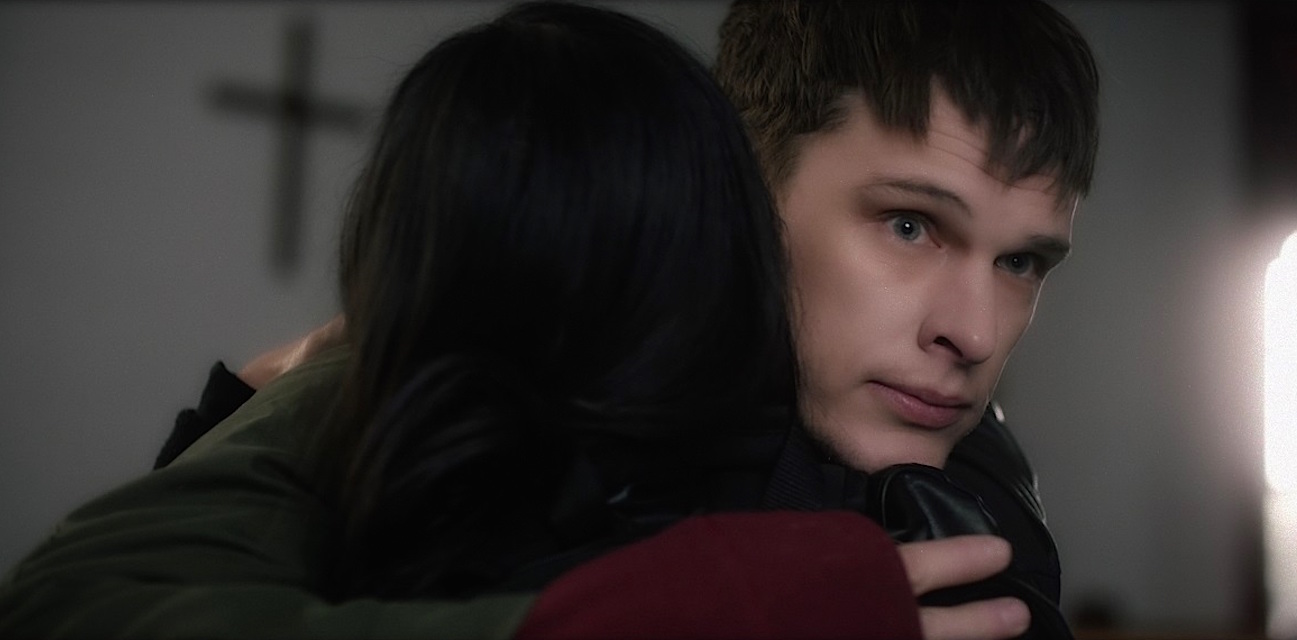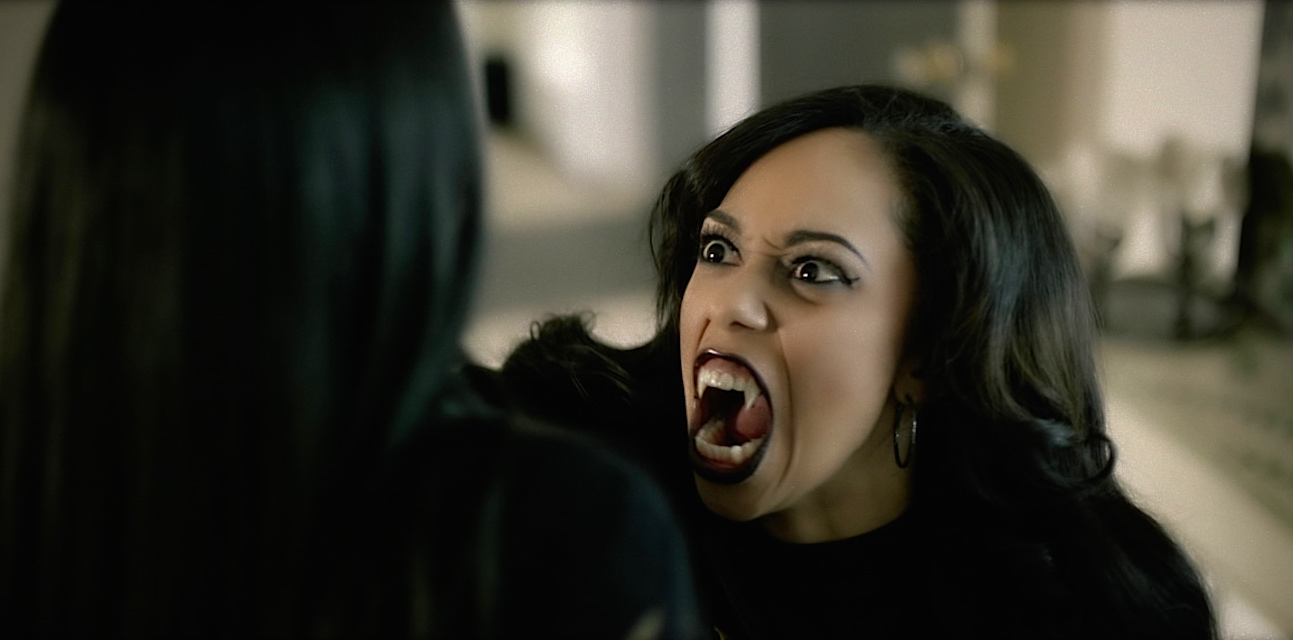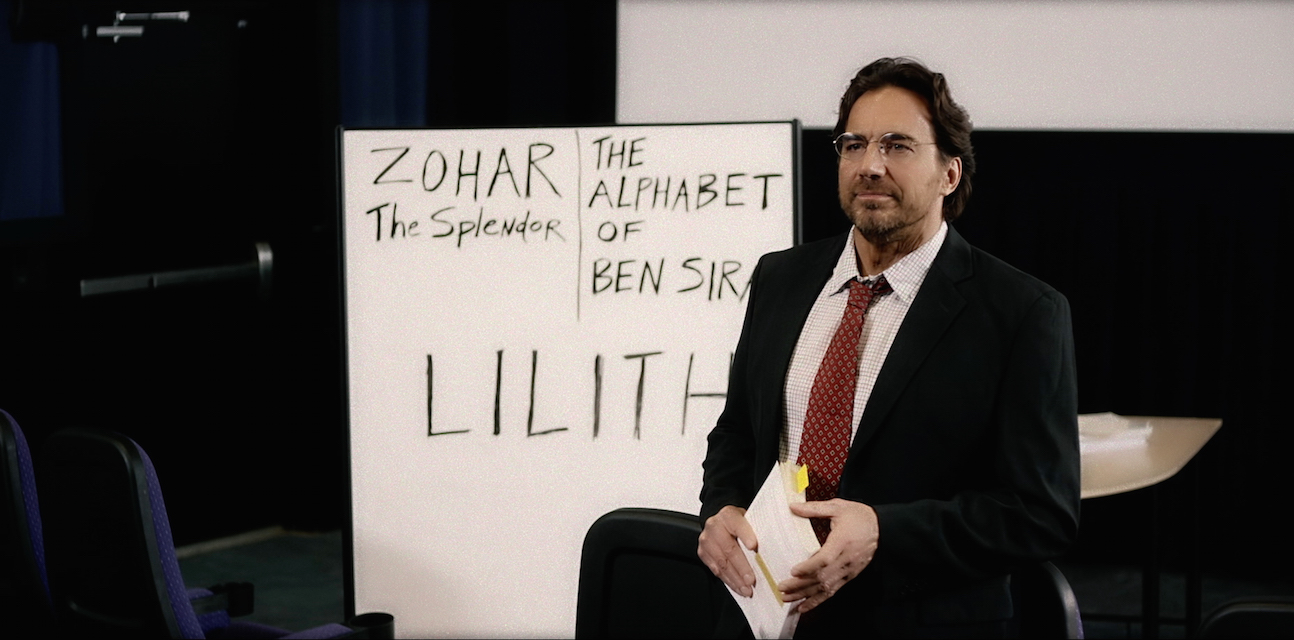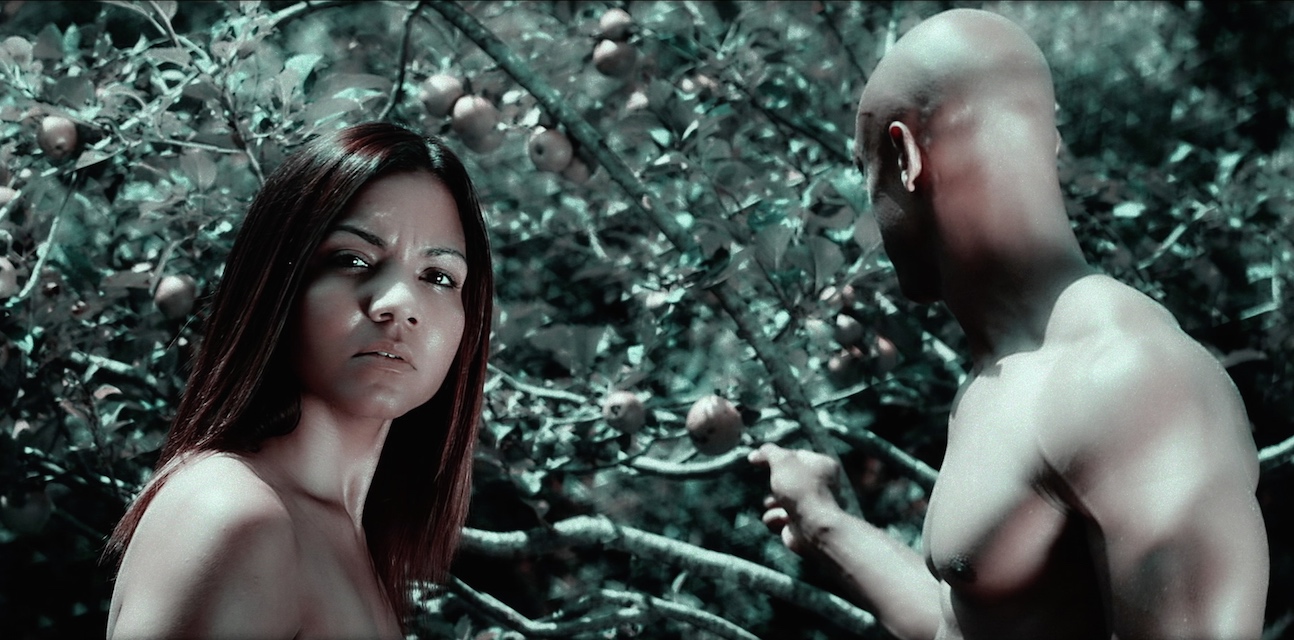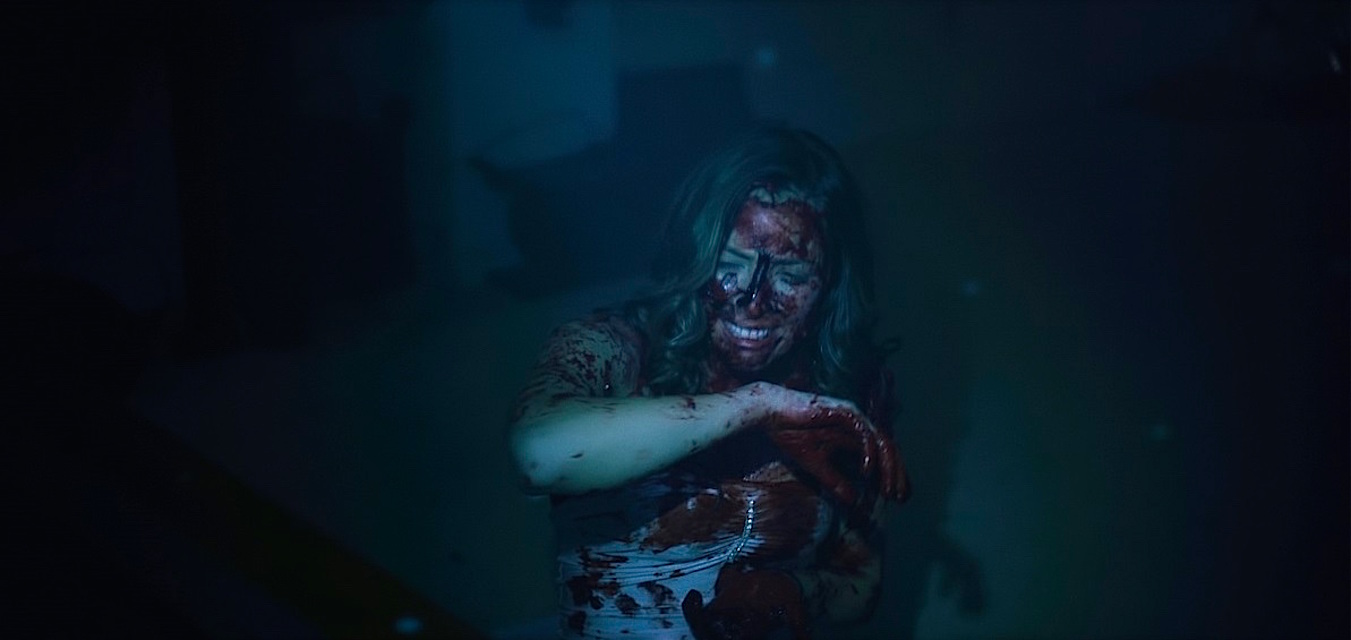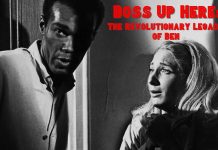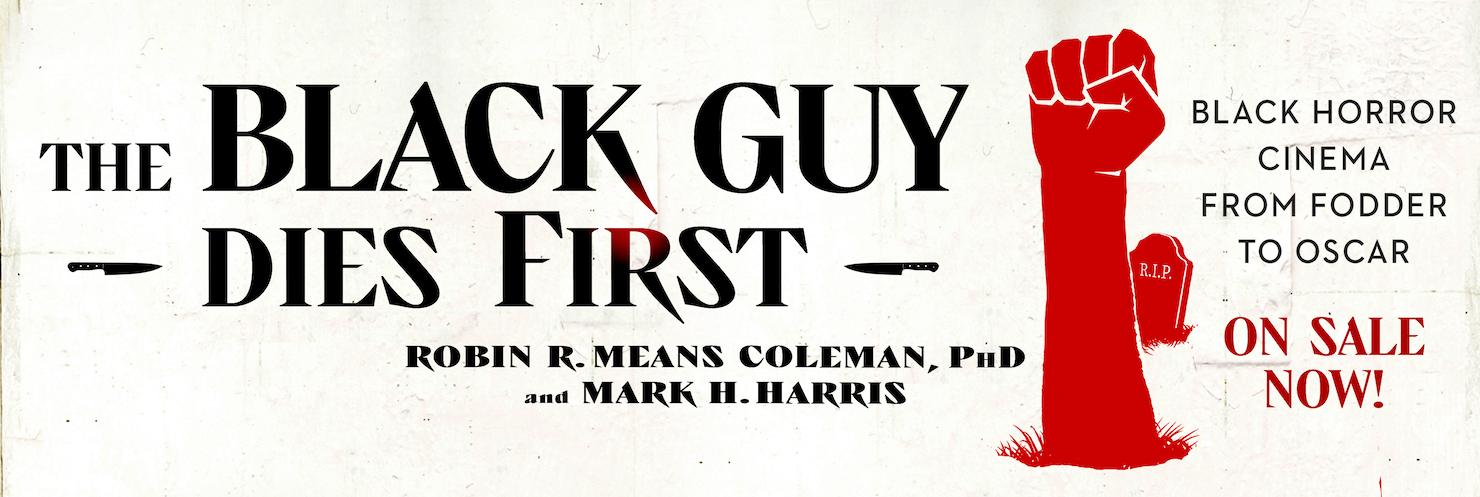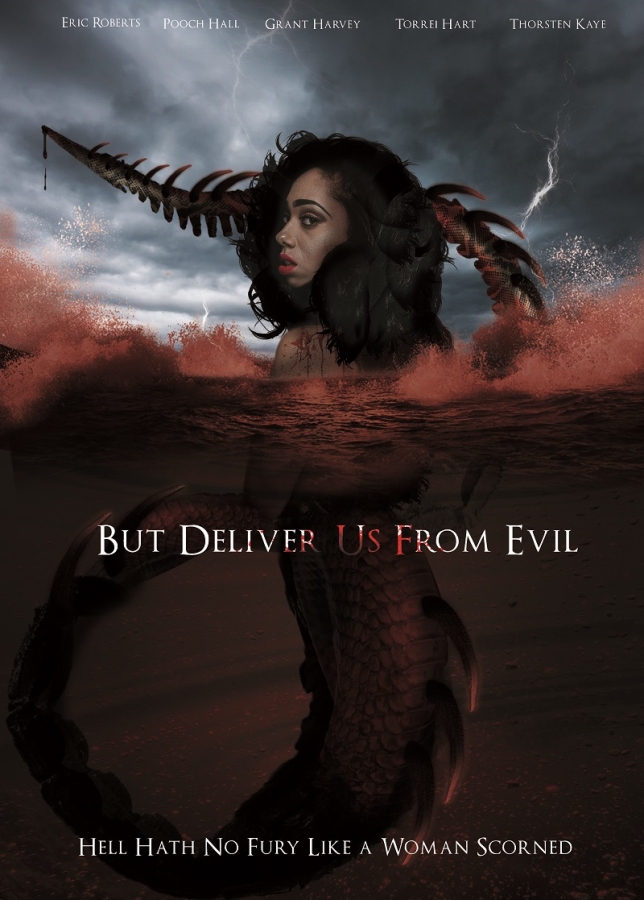Christianity and horror make for strange bedfellows. Edgy horror movies and wholesome faith-based films, after all, pretty much occupy opposite ends of the cinematic spectrum. Sure, demonic possession movies like The Exorcist tend to feature protagonists of faith, but you don’t typically get the sense that those stories intend to promote the religion so much as use it as a tool in the good-versus-evil narrative.
Once in a while, however, a filmmaker comes along who decides that horror is the perfect genre to convey a religious message — with widely varying results. The best-case scenario is The Conjuring, an instant classic ghost story whose religious overtones are heartfelt and understated. On the other end of the scale is narrow-minded, artistically corrupt anti-abortion propaganda like the little-seen film The Life Zone. Somewhere in between lies But Deliver Us From Evil, an earnest creature feature that conveys a sense of genuine religiosity amidst all the booty shaking (BUTT Deliver Us From Evil?) and gut-munching.
It’s set in Atlanta, where a twerky succubus (Alice Rose) is seducing and killing men right and left. Turns out she’s Lilith, Adam’s first wife, who balked at being subservient to him and was banished from the Garden of Eden, at which point she turned into a demon and vowed revenge on men. Why she picks this point in time to go man-hunting isn’t exactly clear, but it just so happens that a bed-headed young man named Jeremiah (Grant Harvey), who may hold the key to stopping her reign of terror, has just moved to town. Who are this mysterious orphan’s parents? What do his visions mean? And most importantly, will anyone ever lend him a comb?
But Deliver Us From Evil suffers from the sort of shortcomings you’d expect from such low-budget fare — uneven acting and special effects (although some of the FX are pretty good for the cost), unconvincing action sequences, bland scares — but in general, the cast (which includes familiar faces like Pooch Hall from The Game, LaTavia Roberson from Destiny’s Child and Eric Roberts from…everything) does a solid job, and the plot puts forth some interesting biblical interpretations. In particular, Adam and Eve are refreshingly presented as people of color, as is Lilith, a figure from Jewish mythology.
Lilith is the primary antagonist, but the movie provides a backstory that actually makes her seem potentially sympathetic. God created her at the same time as Adam and from the same dust (unlike Eve, who came from Adam’s rib), meaning they were on equal standing. Each wanted to be the alpha dog, however, and Lilith ended up on the outside of Eden looking in, cursed by God and transformed into a snake-like demon. In a more thoughtful script, her plight could’ve cast her as a pitiable figure, a multi-faceted villain (if not an outright antihero) who embodies the struggle for female empowerment. As it plays out, though, it becomes clear she’s just a standard movie villain, 100% evil and a personification of the film’s struggle to think outside of the proverbial box.
That said, it’s nice to see a black woman as a central figure in a horror movie — granted, she doesn’t look as cool as she does in the poster. It’s a genre, after all, in which the “bad guy” is often a juicier and more iconic role than the hero. The curvacious Rose is effective as the seductress, even if her impact is greater when she slinks around, silently giving side-eyes and hip gyrations, than when she actually speaks.
Writer-director Joshua Coates deserves credit for delivering an appreciable level of religiosity without coming off as preachy or prudish (While there’s little to no profanity, sex or nudity, there are several scantily-clad strippers, including Lilith, and a surprising amount of gore.). Although he and many of the characters are black, Coates appears to (smartly) want the film to avoid being pigeon-holed as “urban,” so he employs a multi-ethnic cast — including a white lead (Harvey). It’s probably best not to overthink any potentially troublesome elements in the scenario of the villain being an evil black woman and the hero being a pure-hearted white man from a blessed bloodline.
But Deliver Us From Evil uses its biblical inspiration to craft a storyline that’s more thought-provoking that typical low-budget horror fare — including a denunciation of corrupt high-profile church leaders — but the script still could’ve been more nuanced. It ends up delivering an overly straightforward message of faith and good-versus-evil, which is nice but ultimately nothing we haven’t seen before. (Personally, I would’ve found it hilarious if Jeremiah’s secret power is that he’s gay and thus immune to Lilith’s feminine wiles.) Nonetheless, the rich mythology and alluring villainess help to engage the viewer, which is more than can be said for a lot of genre cheapies.
